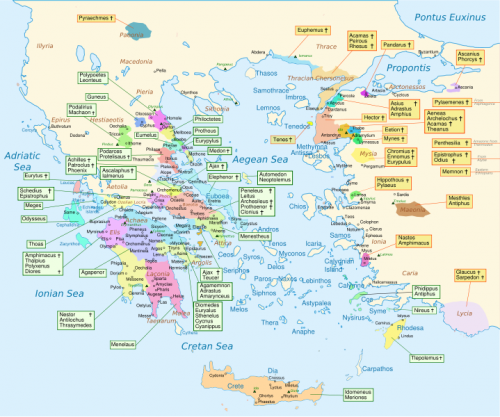The location of Ithaca, home island of Odysseus as mentioned in Homer, has long been a matter of debate, since Homer’s description doesn’t match the topography of modern Ithaca.
There’s an interesting Channel 4 video at CNN about team of British scientists including Professor John Underhill of Edinburgh University and Robert Bittlestone of the ‘Odysseus Unbound’ project, who think they’ve found the location of the Homeric Ithaca.
It’s actually a remarkably dull video, which is why I’ve uploaded this amazingly cool map of Homeric Greece from Wikipedia instead of a screencap.
Anyway, the team has used soundwave data to determine that an area that’s now a valley might once have been a channel, and might hide the buried remains of a lost Greek city.
CNN Video:edition.cnn.com/video/#/video/world/2008/09/07/rush.ithaca.mystery.itn








What are the name tags referring to? Place of death? What about the different colors? I need a key
The name tags refer to where the various heroes came from. The crosses just tell whether the hero died in the Iliad.
Sorry ’bout that this one has keys.
homepage.mac.com/cparada/GML/MapAchaeansTrojans.html
Apparently Wiki has changed a few things.
commons.wikimedia.org/wiki/Image:Homeric_Greece.svg
Is there a Bartic Greece?
I read that as “homoerotic Greece”…
@deuce
Same difference.